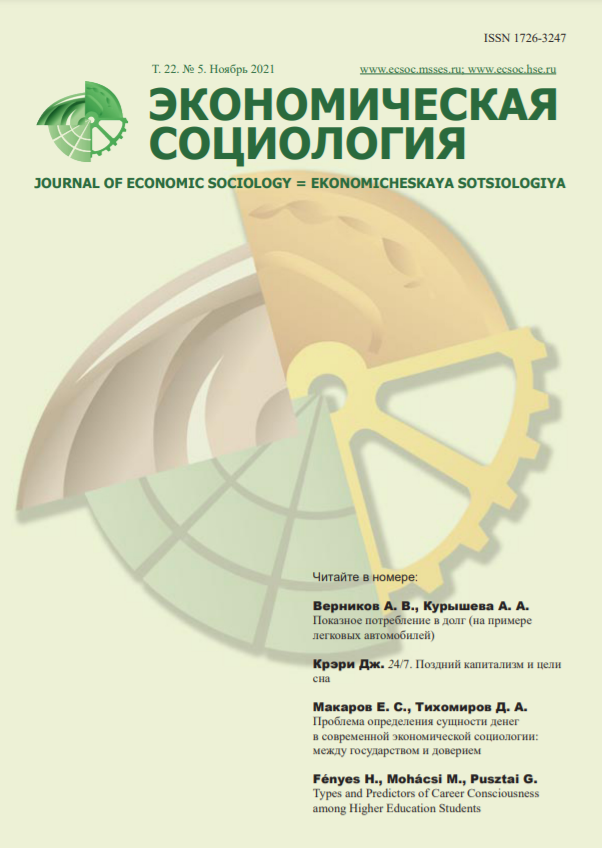The Problem of Defining the Essence of Money in Contemporary Economic Sociology: Between the State and Trust
Abstract
The article considers the problem of defining the essence of money, which is one of the main problems in the contemporary sociology of money. This problem cannot be explained using the neoclassical economic analysis of money, in particular, the evolutionary theory of money by Menger. The main idea of this approach is that the origins of money should be found in the reducing cost of exchange based on the rationality of economic agents. Consequently, the universality of money and its spatial spread have remained unexplained (including temporary uncertainty and the use of money in the future). The paper presents two approaches—by Ingham and Dodd—to defining the essence of money. Considerable attention is paid to classic works in the field written by Simmel and Keynes. From the analy¬sis, we see that the main features distinguishing monetary exchange from other forms of exchange (including barter) can be found in Simmel's The Philosophy of Money. Simmel also provided two solutions on how to de¬fine money: the state's production of credit money or trust in money from society. Ingham developed the first solution and singled out the state's pro¬duction of credit (and the creation of money as account). Meanwhile, Dodd insisted on the fiduciary component of the financial system as a crucial element. Both authors used the metaphor of money as an idea or process embedded in social relations, which contrasts the commodity metaphor in¬troduced by Menger. The main assertion of the article is that the metaphor of money as an idea corresponds to the proposition that the basic function of money is the measure of value (money of account), or store of value, while the neoclassical model suggests that the commodity metaphor of money and its unit of exchange function are crucial. In addition, contemporary theories of money introduce the distinction between money as account (which is more abstract) and particular forms of money (which can be named money stuff). Similarities and contradictions between the two solutions to the problem of uncertainty— by Ingham and Dodd—are also presented in the article.













